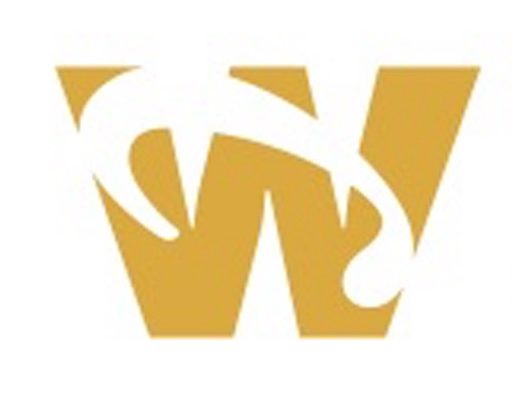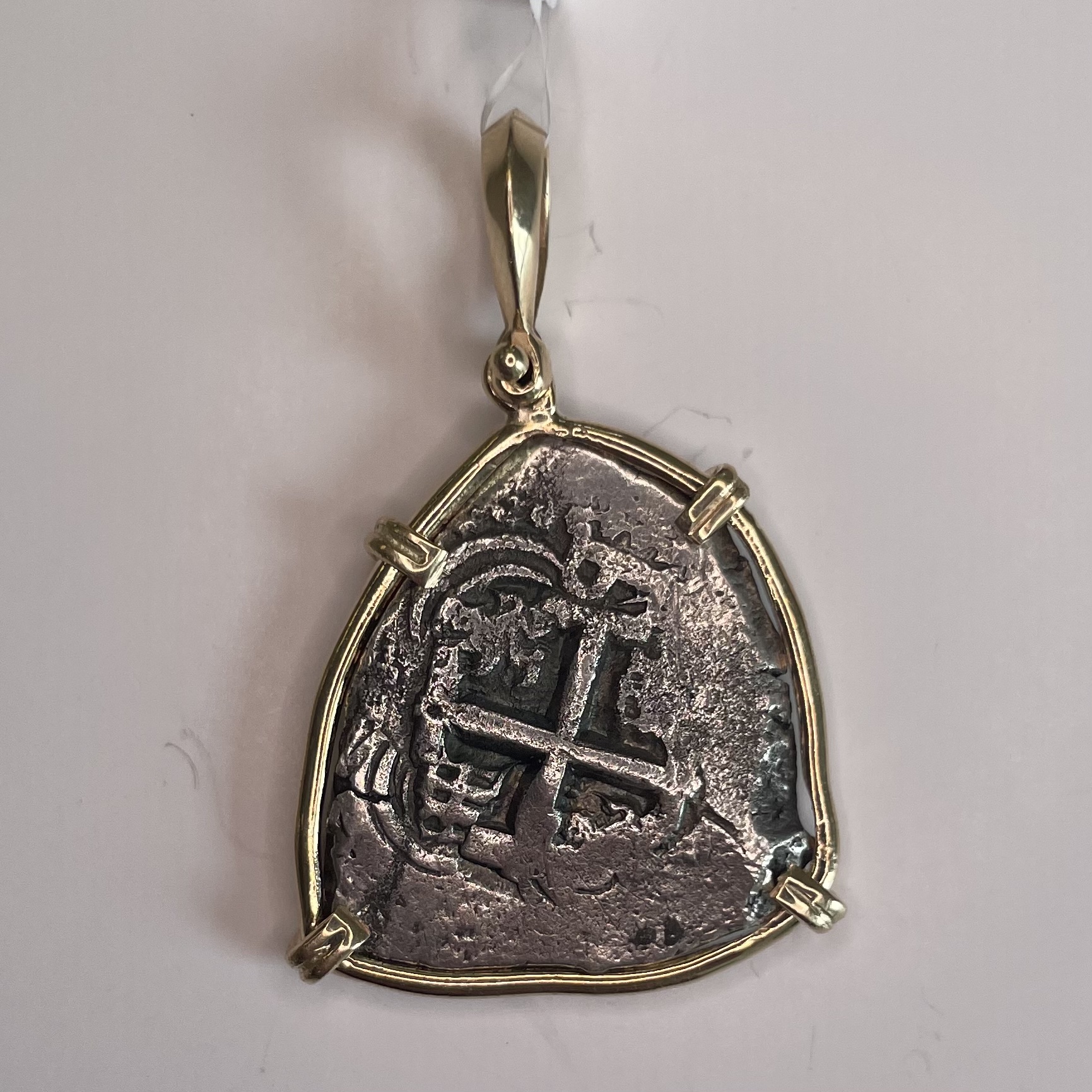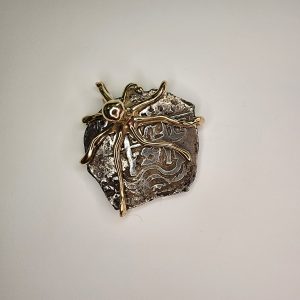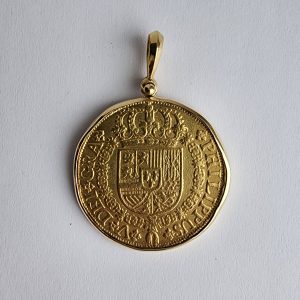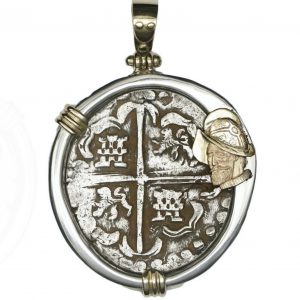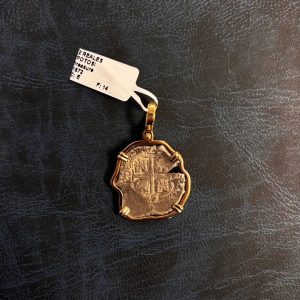Description
JEWELRY FEATURING SHIPWRECK AND TREASURE COINS
Spanish Colonial shipwreck coins from wrecks such as the Atocha, 1715 Fleet, Consolacion, Princess Louisa set in gold and silver frames.
Minted in the Spanish colonies from the mid-1500s through the late1700s, these coins were cut from a bar (ingot) of silver and then were clipped to the proper weight (1/2, 1, 2, 4 or 8 reales.) As they were hand-hammered in a haphazard fashion, the legend (lettering around the periphery) is rarely legible and they are usually an odd shape, making each cob unique. The name Cob comes from the Spanish word “cobo” meaning bar or ingot.
The Jerusalem cross is found on one side of all cobs, signifying the unity of Church and State. Within the cross, there are two castles and two lions in opposing corners symbolizing Spain’s emergence as a nation following the unification of its earliest kingdoms, Castile (castle) and Leon (lion.) On the coin’s reverse, there is either a shield or a set of pillars and waves. Early series cobs feature a shield on one side with a central cross with the castles and lions and a more detailed pillars and waves motif on the reverse
The Shield Variety
Depicted, is the shield of the reigning monarch. It is a basic version of the Hapsburg shield. The mintmark and assayer’s initials are usually to the left of the shield and the denomination to the right. The date is found at the 11 0’clock positions.
Pillar and Wave
Across the center is the motto Plus Ultra (Latin for “more beyond”) signifying that the Spanish empire extended well beyond the Pillars of Hercules. In the upper left and lower right corner is the mint mark; the lower left and upper right have the assayer’s initial The denomination is found at the top center; the date in the bottom center.
